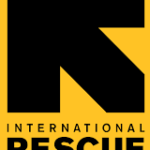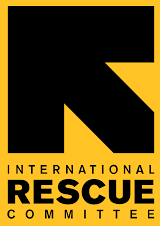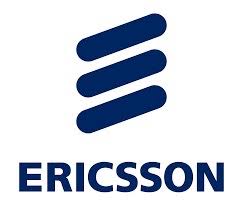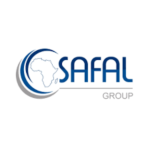
The International Rescue Committee (IRC) responds to the world’s worst humanitarian crises, helping to restore health, safety, education, economic wellbeing, and power to people devastated by conflict and disaster. Founded in 1933 at the call of Albert Einstein, the IRC is one of the world’s largest international humanitarian non-governmental organizations (INGO), at work in more than 40 countries and 29 U.S. cities helping people to survive, reclaim control of their future and strengthen their communities. A force for humanity, IRC employees deliver lasting impact by restoring safety, dignity and hope to millions. If you’re a solutions-driven, passionate change-maker, come join us in positively impacting the lives of millions of people world-wide for a better future.
The International Rescue Committee responds to the world’s worst humanitarian crises and helps people to survive and rebuild their lives. Founded in 1933 at the request of Albert Einstein, IRC offers life-saving care and life-changing assistance to refugees forced to flee from war or disaster. At work today in more than 40 countries and in 22 U.S. cities, IRC restores safety, dignity and hope to millions who are uprooted by conflict or disaster. IRC leads the way from harm to home.
CONTEXTUAL BACKGROUND
- The IRC has been present in Nigeria since 2012 when the organization responded to flooding in Kogi state. In February 2014 the IRC moved into Adamawa State in NE Nigeria to provide humanitarian interventions through a multi-sectoral, integrated approach for conflict affected populations.
- IRC Nigeria now operates a country office in Abuja and field offices in Mubi and Yola of Adamawa State, Maiduguri and Monguno of Borno state, Damaturu of Yobe State and Zamfara and katsina States.
- Currently, IRC Nigeria implements programs primary health care, nutrition, environmental health, women’s protection and empowerment, protection, child protection, education, food security & livelihoods
Job Overview/Summary
Gender-based violence (GBV) is a serious human rights and public health issue affecting women and girls around the world. It impacts all aspects of women and girl’s physical, emotional, psychological, and social well-being. It has harmful consequences for the individuals who experience it, their families, and their communities. The WPE Community Engagement Officer will be based in Mubi, Adamawa state and with support from the WPE program managers, he\she will work in coordination with the prevention and response teams to design strategies using EMAP and SASA Together! modules to prevent gender-based violence as well as take lead in engaging community leaders, community-based structures and local partners through training and awareness-raising sessions that are geared towards GBV prevention and response.
Major Responsibilities
- The Community Engagement Officer assists the Program Manager in developing and sustaining a GBV community mobilization strategy that will allow members of the community to reflect on the GBV issues affecting their community and guide them in their effort to prevent GBV.
- Work with community mobilization assistants and capacity-building assistants to design key sensitization messages using the SASA Together! community sensitization guide.
- The Community Engagement Officer accesses training needs and works with the Program Manager to plan and implement training accordingly.
- Do regular field visits to assist capacity-building assistants and community mobilization assistants in community mobilization using EMAP and SASA Together! modules.
- Ensure key stakeholders such as police, judiciary, heads of schools, heads of health institutions, community leaders, local groups including women and adolescent girls’ groups, community volunteers and the Ministry of Women and Social Development are engaged for training and community sensitizations.
- With support from the Program Manager, take the lead in the commemoration of international events: International Women’s Day, 16 days of activism and International Day of the Girl Child and submit a comprehensive evidence-based report.
- Ensure the formation of women, and adolescent girls’ groups (WAG, EMAP, EASE, AG, SASA Together!) and develop guidelines for the formation of these groups and their roles with reference to the Nigeria context.
- In coordination with the other WPE officers, assist in assessment and surveys including PDM, Safety Audits, knowledge checking etc. and provide update to improve program quality.
- The Community Engagement Officer also helps to establish collaborative relationships with collaborating partners including subsector working groups, and local authorities: the Ministry of Women Affairs and Social Development, the Ministry of Justice, and the Ministry of Health to strengthen GBV prevention and response through a coordinated referral pathway.
- Visit operational sites to monitor the progress of GBV activities.
- Supervise and support capacity-building assistants and Community mobilization Assistants to deliver quality programming.
- Ensure field staff receive all necessary materials needed for training and awareness activities.
- Monitor mobilization messages and other activities to ensure field staff maintain a consistent message that follows the GBV mobilization strategy and use a variety of mobilization tools in their work with the communities.
- Liaise with community leaders, government agencies, IRC program sectors and other appropriate agencies to ensure that the program is meeting their needs.
- In coordination with WPE Managers and prevention team, assess the training needs of sub-sector working group members and plan appropriate training.
- Design, implement and evaluate quality GBV awareness-raising sessions and training systematically and consistently by establishing GBV training procedures
- Coordinate, monitor and closely supervise the capacity building and community mobilization activities in Borno State maintaining standardized training and a consistent message.
- Compile and summarize monthly statistics and narratives on community mobilization activities and training reports from the field and submit an overall weekly and monthly report to WPE Program Managers in Adamawa.
- Ensure that all work is done in accordance with established protocols and within ethical guidelines.
- Prepare and submit all financial documents including supporting documents of conducted activities in a timely manner.
Program Development
- Support the strategic direction of the WPE program by identifying emerging GBV trends, service gaps, and opportunities for innovation, and collaborate with the Program Manager to adjust strategies accordingly.
- Coordinate with the WPE Response Officer and MEAL Officer to conduct assessments and surveys (e.g., PDM, Safety Audits), and use findings to provide actionable insights for enhancing program quality and refining strategies.
Staff Performance Management, Learning & Development
- Hire, supervise, and build the capacity of Community mobilization assistant in relevant technical and management competencies.
- Develop and implement remote management capacity building approaches to build the strengths of the team in Adamawa State.
- Coach, train, supervise and mentor direct-report staff, including communicating clear expectations, setting annual performance objectives, providing regular and timely positive and constructive performance feedback, and providing documented semi-annual performance reviews.
- Maintain open and professional relations with team members, promoting a strong team spirit and providing oversight and guidance to enable staff to successfully perform in their positions.
- Approve and manage all time, attendance and leave requests to ensure adequate departmental coverage; ensure monthly, accurate timesheet submission and carry out probationary reviews…
- Hold high-quality meetings with each direct report on a regular and predictable basis, at least monthly.
- Provide a measurable development plan including on-the-job learning with the aim of strengthening technical capacity, exchanging knowledge within the team and providing guidance on career paths.
- As required identify staff performance issues and work with Human Resources to document and address these in accordance with the National Staff Employment Policies.
- Maintain open and professional relations with team members, promoting a strong team spirit and providing oversight and guidance to enable staff to successfully perform in their positions.
- Promote and monitor staff care and well-being. Model healthy work-life balance practices. Support appropriate interventions in response to identified staff care needs of both national and international staff.
- Look for opportunities to support staff in their career growth, where appropriate. As part of succession plan and nationalization goals, identify, train and develop capability and capacity of national staff to successfully transition role and responsibilities, by the end of assignment.
- Adhere to and act in accordance with the IRC Global HR Policies and Procedures and communicates through word and example a high standard of compliance with all applicable policies and regulations.
Research, Learning and Analysis
- Lead and support research initiatives to gather data on GBV trends, service delivery gaps, and community needs, ensuring that findings inform programmatic decisions and strategic adjustments.
- Analyze data from assessments, surveys, and monitoring activities (e.g., Post-Distribution Monitoring, Safety Audits) to identify patterns, challenges, and areas for improvement in GBV prevention and response programs and report to the program manager.
- Collaborate with the MEAL team to ensure robust data collection, monitoring, and evaluation processes that contribute to the continuous learning and improvement of WPE interventions.
- Ensure lessons learned and best practices from program implementation are documented and shared within the team and with relevant stakeholders, contributing to evidence-based advocacy and program enhancement.
Coordination & Representation
- Meet with community-based workers, community mobilization assistant, Case workers, case management officer on a weekly basis to coordinate activities and work schedules.
- Communicate with the Program Manager on program progress, constraints, and identified needs.
- Assist Program Manager in designing a GBV Training Strategy and IEC materials.
- Liaise closely with other IRC sectors for additional training to benefit IRC staff and community members in consultation with the Program Manager
- In collaboration with protection M&E, plan and implement surveys and needs assessments as required.
- liaise with community leaders, government agencies, IRC program sectors and other appropriate agencies to ensure that the program is meeting their needs.
- In coordination with WPE Managers and prevention team, assess training needs of sub-sector working groups members and plan appropriate training.
- Ensure field staff are working closely with community leaders, government agencies, IRC program sectors, women’s groups, and other agencies in their operational area.
- Design, implement and evaluate quality GBV awareness raising sessions and training in a systematic and consistent manner by establishing GBV training procedures.
Key Working Relationships
- Position Reports to: WPE Manager
- Indirect/Technical Reporting: Senior Safety Outcome Manager
- Position directly Supervises: Community Mobilization assistant.
Key External Contacts
- Country Program: Safeguarding Officer
- Region/Global
Minimum Qualifications:
Education
- University Degree in Social Work, Political Science, or a related field.
Work Experience
- 3 years’ experience implementing GBV prevention programming including experience in emergency or post-conflict project management.
- Demonstrated Technical Skills:
- Demonstrated experience in implementation GBV primary prevention activities like EMAP, SASA Together, VSLA And Advocacy
- Demonstrated Managerial/Leadership Competencies:
- Excellent communication skills, cultural sensitivity, flexibility, ability to improvise, team player.
- Experience in using community based and participatory approaches.
- Experience in community mobilization and awareness creation.
- Experience in working in remote and hard to reach areas with limited amenities
Languages
- Fluency in English and other languages desirable.
- Knowledge of the local language and context will be an added value.
Computer/Other Tech Requirements
- Full professional competency in Microsoft Office Suite, especially Word, Excel, Outlook, and PowerPoint.
Standards of Professional Conduct: The IRC and IRC workers must adhere to the values and principles outlined in the IRC Way – Code of Conduct. These are Integrity, Service, and Accountability. In accordance with these values, the IRC operates and enforces policies on Beneficiary Protection from Exploitation and Abuse, Child Safeguarding, Harassment-Free Workplace, Fiscal Integrity, Anti-Retaliation, Combating Trafficking in Persons and several others.
Gender Equality: IRC is committed to narrowing the gender gap in leadership positions. We offer benefits that provide an enabling environment for women to participate in our workforce including parental leave, gender-sensitive security protocols and other supportive benefits and allowances.
Working Environment: IRC is an Equal Opportunity Employer. IRC considers all applicants on the basis of merit without regard to race, sex, color, national origin, religion, sexual orientation, age, marital status, veteran status, disability or any other characteristic protected by applicable law.
Standard of Professional Conduct:The IRC and the IRC workers must adhere to the values and principles outlined in the IRC Way – our Code of Conduct. These are Integrity, Service, Accountability, and Equality.
Commitment to Gender, Equality, Diversity, and Inclusion: The IRC is committed to creating a diverse, inclusive, respectful, and safe work environment where all persons are treated fairly, with dignity and respect. The IRC expressly prohibits and will not tolerate discrimination, harassment, retaliation, or bullying of the IRC persons in any work setting. We aim to increase the representation of women, people that are from country and communities we serve, and people who identify as races and ethnicities that are under-represented in global power structures.









